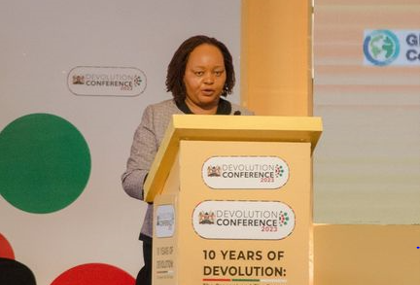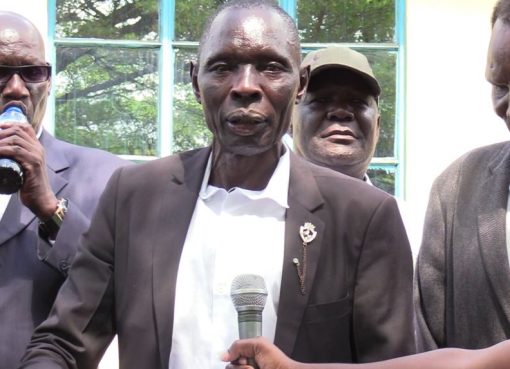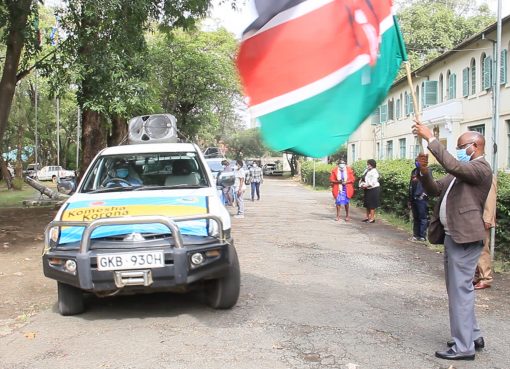The 8th Edition of the Devolution Conference, which marks 10 years since inception of the devolved governments in Kenya, has attracted the attention of various development partners and sponsors both locally and internationally.
The Partners could not hesitate to praise the tremendous impacts the System had made in terms of development across various sectors of the economy.
In his address in Eldoret, Uasin Gishu, during the first ever biennial devolution conference in Kenya, the Chair of the Devolution Working Group, Amb. Ole Thonke, pointed out that the country has made remarkable achievements through devolution, which has brought about the spirit of family as everybody came together, despite political differences, to find solutions and really try to move forward services to the people in different counties.
He indicated that devolution has been successful in bringing decisions and resources closer to people, which has seen much more equal development all over Kenya, like enhanced citizen participation and huge investment in health centres, water, agriculture, road infrastructure, among others.
“Devolution in Kenya has really been a game changer and that is why we, as development partners, are so keen to engage even more with all counties and devolved offices in Kenya,” he said.
He recommended a number of things to further devolution in Kenya, like timely disbursement of funds to the counties to enable them to carry out projects within the stipulated time frame.
“If counties do not get the money and the resources in time before the Financial Year ends, nothing will happen and we are so happy to learn that this year the new government was able to send the money on the 10th of July to the counties to make sure that those funds start working immediately,” noted Amb. Thonke.
He advocated for harmonised finance laws to enable the development funding of about Sh 33 billion to reach the counties on time, unlike currently where the funds require approval from the National Assembly and the Senate, which he said is a bit cumbersome.
He further stated that, to drive forward the wheel of devolution, the State should ensure proper mechanisms to ensure corruption does not happen at the county level since that will be deceiving leaders and the local communities, adding that even for them as development partners, they will run away as fast as they can when they observe that.
Amb. Thonke lauded the President for his Administration’s move to transfer the remaining functions according to the Constitution to the counties, noting that it is not an easy task as it requires a lot of resources.
He added that they, as the development partners, are all looking forward to that happening.
“I urge all to recognise that the glass of devolution is actually more than half full in Kenya; both central and devolved levels need to work together to fill that glass even further,” he said.
He expressed pleasure over the Civil Society Organisations (CSOs) and the private sector organisations that are really key and willing to work with everybody and all the counties to move devolution forward. He assured them that the development partners are ready and committed to pour in a bit of extra water “to fill the glass of devolution.”
The development partners’ sentiments were echoed by the Prime Cabinet Secretary, Musalia Mudavadi, who affirmed that devolution has impacted societies tremendously despite a few challenges.
He challenged governors to ensure full implementation of the development projects in their counties to ensure efficient and effective service delivery to their citizens.
“In deed, as we mark 10 years of devolution, if the 2010 Constitution is the crown for the country, then devolution is the critical duel in that crown. The question we ought to ask ourselves is, if you are a governor and have administration in the county, are you a facilitator or an obstructer?
“The same goes for those in the national government; if you are in a particular department of government, ask yourself, are you a facilitator or an obstructer?” said the Prime Cabinet Secretary.
Mudavadi pointed out that there are still some challenges that need to be addressed in order to move forward devolution, such as focusing more on budget execution, how to tackle pending bills, continuous capacity building in the counties for better financial management and in equal measure, encouraging and supporting the counties to enhance their own source revenues.
He commended the President for his total commitment and unwavering support for devolution through his vibrant members of the cabinet.
Council of Governors Chairperson and Kirinyaga Governor, Ann Waiguru, underscored the remarkable achievements the devolved units have made for the last 10 years across various sectors, including health, education, agriculture, business and others.
By Ekuwam Sylvester




